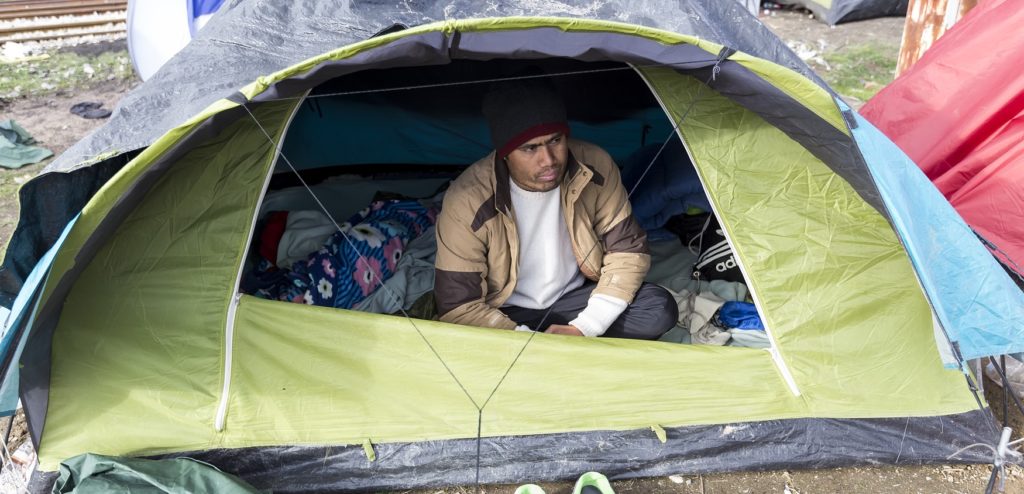Yesterday, the DC Council held its first vote on the budget for fiscal year (FY) 2020. While the near-final FY 2020 budget includes a number of increases for programs that work towards a more equitable DC, notable gaps remain. With the impact of decades of systemic racism still evident throughout DC today—in our affordable housing challenges, education system, public safety, and more— the District should be doing even more to ensure that all residents have the opportunity to succeed in DC.
Budgets reflect what we value as a city. Each budget season, DC’s leaders face a series of choices about where to invest the District’s resources, and how to raise revenue. Notably, the Council voted yesterday to redirect nearly $16 million from ineffective business tax subsidies to crucial programs, including early childhood development and homeless services. This is just one of many tools available for growing our resources and is an important first step toward investing in a thriving DC.
The second and final vote to approve the FY 2020 DC budget is scheduled for Tuesday, May 28.
Here are the key takeaways from the budget that the DC Council voted on yesterday:
Affordable Housing
- ‘Keep Housing Affordable’ Tax Credit Strengthened: The budget includes changes to the ‘Keep Housing Affordable’ (Schedule H) Tax Credit that will better protect low-income residents from the impact of rising property values and housing prices. The maximum tax credit will rise from $1,025 to $1,200 and adjust for annual cost-of-living changes, and the maximum income eligibility will rise from $52,000 to $55,000 for non-seniors and from $70,000 to $75,000 for seniors. The Council also eliminated the requirement that applicants list their dependents’ income as part of the application and simplified the electronic filing process, which will make it easier for eligible applicants to receive the tax credit.
- Public Housing Repairs Funded: The Council is attempting to divert $30 million from Events D.C.’s reserve fund, projected to total $176 million at the end of FY 2019, for public housing repairs. However, this diversion of funds must be approved by DC’s Chief Financial Officer. If approved, the $30 million will help repair 2,610 public housing units. The District of Columbia Housing Authority (DCHA) will also receive between $15 million to $20 million in unspent rent subsidies for public housing repairs at the end of the fiscal year. DC’s public housing primarily serves low-income residents who are seniors, people with disabilities, and families with children. The District should invest in these households, many of whom are longtime Black residents, by creating a dedicated revenue stream for long-term repairs.
- Housing Production Trust Fund Decreased: The budget makes a $120 million investment in the Housing Production Trust Fund (HPTF), DC’s primary tool to finance the production and preservation of affordable housing. While this investment is the first HPTF increase in five years, the Council reduced the Mayor’s initial $130 million proposal by $10 million. The budget reflects an important recognition that more affordable housing is needed, but funding the HPTF at $200 million would help put DC on a path to meeting the most serious affordable housing challenges for the 27,000 extremely low-income households, primarily headed by a person of color, over the next decade.
- Rental Assistance Funded at the Expense of Preservation Fund: The budget includes $7.89 million in new funding for the Local Rent Supplement Program (LRSP), which makes homes affordable to extremely low-income households—those with incomes below $35,150 for a family of four. While important, this increase comes at the expense of the Preservation Fund (see below). Funding for LRSP includes $5.7 million to support operating costs of approximately 288 new units of subsidized housing through the project-based component of LRSP, and $1 million for tenant-based LRSP to provide rent vouchers to 48 households on the DC Housing Authority waiting list.
- Housing Preservation Fund Eliminated: The proposed budget allocated $15 million for the public-private Preservation Fund created in FY 2018 and funded at $10 million in each of the last two years. The Preservation Fund provides financing to preserve, acquire, and rehabilitate the city’s disappearing affordable housing stock. The Council eliminated all funding for the Preservation Fund and moved it to other affordable housing programs. These funds would have leveraged an additional $30 million in private funds for a combined loss of $45 million for the Housing Preservation Fund.
- Workforce Housing Significantly Reshaped: The proposed budget included $20 million for a new “Workforce Housing” program to support the development of units targeted to moderate-income households. The Council reshaped the program from a one-time grant to four years of reduced taxes for nonprofit developers. The Council also changed the income-targeting to ensure a portion of the funds reach lower-income households.
- Public Housing Credit Repair Pilot Funded: The budget includes $165,000 to fund a program allows public housing residents to opt-in to monthly rent payment reports to a credit bureau. This will allow residents who consistently pay their rent on time to build credit, avoid high-interest loans, and better access job and housing opportunities.
Early Childhood Development
- Support for Infants and Toddlers and Their Families (“Birth to Three for All DC”): The budget includes $16 million for a variety of services to support DC’s children in the critical period from birth to age 3. This includes $7.4 million for the child care subsidy program to improve the quality of early education for infants and toddlers in low-income families; $4 million to strengthen Home Visiting programs, particularly for families experiencing homelessness and immigrant families; $1.5 for Healthy Futures, which brings behavioral health specialists into early child hood centers; $600,000 to expand HealthySteps, which uses pediatric doctor visits to help parents with a range of child development issues; $300,000 to support individuals pursuing careers as lactation consultants; $80,000 for Help Me Grow, a hotline to help parents navigate services for their children; and $2 million for a study to create a competitive compensation scale for a strong early education workforce.
Education
- Increased Per-Student Funding, but Cuts to DCPS Schools in Wards 7 and 8 Remain: The budget includes a 3 percent increase in the per-student funding formula (UPSFF) that funds both DCPS and public charter schools. This is more than the rate of inflation, but less than the 4.3 percent increase in the average cost of a DCPS teacher, which means that overall, schools may not be able to maintain current staff and services. Under the proposed budget, a number of DCPS schools faced budget cuts, nearly all of them in Wards 7 and 8; the funding added by the Council is not enough to eliminate these cuts. In addition, it is likely that under the adopted budget a large share of funds designated for students at-risk of falling behind academically will continue to be diverted by DCPS to other purposes, a practice that has occurred for several years.
- More Funds for School-Based Mental Health: The budget includes $9 million in new funding for school-based mental health services, which could potentially support providing an additional mental health clinician in 90 schools.
Health
- Partial Effort to Eliminate Health Care Barriers Imposed on Immigrants: The budget includes provisions to allow participants in the DC Healthcare Alliance—a health insurance program for low-income residents that primarily serves immigrants—to renew their eligibility at a community health center. This is a partial step toward eliminating barriers to enrolling in the Alliance. Since 2011, the District has required Alliance participants to visit a DC social service center every six months to renew eligibility, a more restrictive practice than in any other public benefit program. This barrier leads to a high rate of “churn,” or turnover, in the Alliance, and this intermittent coverage leads to poor health outcomes and higher health costs. The Council’s action will ease barriers by allowing participants to visit either a DC social service center or community health center to renew their eligibility. Fully eliminating the six-month recertification would be an example of budgeting for equity.
- Limited Support for United Medical Center Puts Hospital at Risk: The budget passed by the Council provides $15 million to support the operations of United Medical Center, DC’s public hospital in Ward 8. This is a substantial cut from $40 million included in the proposed budget and reflects a Council concern over the substantial subsidies the hospital has received in recent years. (The Council also voted to create a financial control board for the hospital if certain goals are not) The hospital needs support because a large share of its patients are uninsured or covered by public insurance—Medicare or Medicaid—that pays less than private insurance. Regardless of the Council’s concerns, there is little doubt that providing such a limited subsidy for UMC will make it hard for the hospital to maintain services—it for example will likely lead to large staff layoffs—as the city prepares to build a replacement hospital. Given that the District has not yet finalized a deal for the new hospital, it is important to support UMC, the only hospital in the eastern half of the city.
Homeless Services
- Support for Youth Homelessness Fully Funded: Many youth who experience homelessness do so without their parents or guardians and do not have children of their own. These “unaccompanied” homeless youth fall into two broad categories: those under age 18 and those who are 18 to 24 years old. In DC, youth under age 18 can only access housing and shelter dedicated to this population. Older youth, often called transition-aged youth (TAY), can access both TAY programs and adult housing and shelter. The Mayor and the Council invested $5.5 million to fully fund the DC Alliance of Youth Advocates’ asks by adding funding for 50 new Permanent Supportive Housing (PSH) slots, 50 new transitional housing beds, and 60 shelter beds. The budget maintains $400,000 from the FY 2019 budget to support services at the new 24-hour drop in center, as well as homelessness prevention and aftercare services. Aftercare provides individually tailored services to formerly homeless youth and their host family or friends to ensure that the housing placement is stable. These services can include conflict mediation and referrals to mental health and other services.
- Increased Funds for Homelessness Prevention: The budget adds $875,000 to Project Reconnect, a program that helps individuals who are newly homeless find alternatives to shelter, such as reuniting with friends and family. This will double the program’s budget and allow the program to serve 1,000 people, twice as many as in 2019. The budget also adds $798,000 to expand the Homeless Prevention Program (HPP) to 266 additional families. HPP works to prevent a family at imminent risk of losing housing from becoming homeless through the provision of stabilizing services and resources.
- Increased Funding for Individuals Experiencing Chronic Homelessness Still Falls Short: The budget includes funding for 584 units of Permanent Supportive Housing (PSH) and 30 units of Targeted Affordable Housing (TAH) units for individuals experiencing chronic homelessness. While this falls short of the number called for by The Way Home campaign, it is the largest increase in the number of affordable housing units for people experiencing homelessness in the past eight years. Given that Black residents experience homelessness at much higher rates than white residents do, increased funding for chronically homeless individuals is crucial for achieving greater racial equity.
- Funds to Replace Lost Federal Funding for Street Outreach: Over the past three years, DC nearly doubled its street outreach to individuals experiencing homelessness and living outside, primarily funded through a federal grant. Outreach services target hard-to-reach individuals who do not seek shelter or other homeless services. Outreach workers help these individuals apply for housing, obtain necessary documentation, and connect with vital services like mental and physical healthcare. The budget includes nearly $3.7 million to replace this expiring federal grant.
- Emergency Rental Assistance Mostly Recovered: The proposed budget for the Emergency Rental Assistance Program (ERAP) was nearly $6.8 million. This reflected a cut from the FY 2019 budget of $624,000. The Council added an additional $1.1 million to fill this gap and to expand the program to more households.
- Improvements to Public Restroom Access: The Council added funding to build two standalone restrooms a year and $62,000 for a program that incentivizes businesses to make their restrooms available to the public.
- Funding for Family Homelessness Falls Short of the Need: The proposed budget was notable because it provided enough funding to serve all families experiencing chronic homelessness—adding $6.3 million for 180 Permanent Supportive Housing (PSH) units for families. The proposed budget included $2 million for 80 additional Targeted Affordable Housing (TAH) units and the Council reprogrammed $3 million from family Rapid ReHousing (also known as FRSP) to create 123 additional units of TAH. While the actual need is difficult to measure due to limited data, it is likely that the number of families experiencing homelessness who need long-term rental assistance is much larger. DCFPI recommended increasing funding to provide TAH to 500 families.
- Funding Stipends for ICH Consumer Work Group Members: The budget creates a stipend program for residents who have or are currently experiencing homelessness and are members of the Interagency Council on Homelessness (ICH) Consumer Work Group. Members can receive $50 for every ICH meeting they attend to compensate for their time and expertise, well as to support travel expenses incurred to attend meetings.
Jobs & Training
- Career Pathways Innovation Fund Expanded: The Council fully restored and expanded funding for the Career Pathways Innovation Fund (CPIF), which was created in FY 2016 to help education providers implement goal-oriented, industry-specific training, as mandated by the Workforce Innovation and Opportunity Act. In recent years the Council maintained CPIF’s funding levels at $1.5 million. The FY 2020 budget expands the program, providing $2.15 million to the Workforce Investment Council for CPIF grants.
- Department of Employment Services (DOES) Programs: The Council replaced $5.8 million in recurring funds with one-time funding in the same amount for four workforce and training programs – the Local Adult Training Program, the D.C. Infrastructure Academy, the Project Empowerment program, and the D.C. Career Connections program. The Council intends for the one-time funding to incentivize DOES to better measure program effectiveness.
- Transportation Subsidies for Adult Learners Increased: The Council increased the monthly transportation subsidy for adult learners and re-engaging youth from $50 to $70 per month. This will better cover the cost of Metrobus and Metrorail rides for program participants, a need identified by program providers and current participants during budget oversight hearings.
Public Safety
- Additional Resources for Violence Prevention and Intervention: The Council increased funding for violence prevention and intervention programs, including the Cure the Streets program out of the Office of the Attorney General and programs through the Office of Neighborhood Safety and Engagement. This brings funding for violence prevention in FY 2020 to $4 million. Given that Black residents are criminalized at a significantly higher rate than other residents, investing in community approaches to public safety, with an emphasis on prevention, diversion, and treatment, is critical to advancing racial equity in the District.
Raising Revenue
- Scaling Back Ineffective Tax Subsidies: The Council approved an amendment to scale back an ineffective tax subsidy for high-tech companies that has failed to drive economic development in the District, but results in $40 million in foregone revenue each year. The amendment adjusts the Qualified High Technology Company (QHTC) program in several significant ways that result in savings, and directs those resources to invest in the FY 2020 budget.
-
- QHTC’s will no longer receive a reduced corporate income tax rate of 6 percent in perpetuity. Instead, they can claim that rate for 5 years. However, the exemption may not exceed $250,000 per year.
- The tax credit for employees will be reduced from 10 percent to 5 percent of their wages over the first two years, with a cap of $3,000 instead of $5,000.
- The exemption from sales tax on items and services bought and sold by QHTC’s will be
-
These changes are in line with recommendations from the Chief Financial Officer and will result in nearly $16 million in reclaimed revenue for FY 2020. These funds will go into homeless street outreach, lead remediation, school-based mental health services, the Birth to Three child care subsidy, and permanent supportive housing for residents experiencing homelessness.








